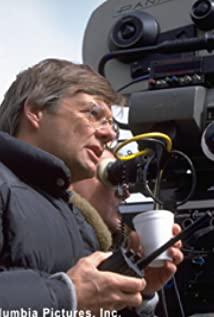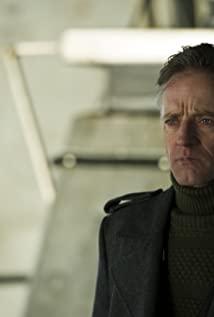The film is based on the novel of the same name by renowned Danish progressive writer Martin Anderson Nixo. Nixor's novel has been hailed as a social epic of the late 19th and early 20th centuries in Denmark and a colossal mural of the living conditions of the proletariat. Nixor depicts the class awakening of the Danish proletariat in the early 20th century through the upbringing of Pere, the son of a hired laborer, through his complex and tortuous life path and emotional ups and downs. It is not difficult to imagine that the writer and director have worked hard in terms of structure to compress such a grand novel with a rich plot into a 2.5-hour film. Billy August essentially preserves the plot sequence of the novel, recreating the year-round agricultural labor that Nixo depicts through Perey's eyes, and the fates of the characters interspersed between them. Peret went from swallowing up to disillusionment, but still maintained self-esteem and hope; finally, he left the manor, said goodbye to his father, and went out into the world, which marked the end of one phase in his life and the beginning of another: Peret greeted 20 The dawn of the century is gone.
The film appears at the end of the 20th century, and has historical significance that the original novel did not have. Our century is dawning on the clarion call of socialism. The dissemination of socialist ideas brought social revolution and social change, and also created a generation of writers with socialist consciousness. Gorky in Russia and Nixo in Denmark are representatives of such writers. However, when the 20th century was about to come to an end, the socialist revolution encountered unprecedented setbacks. Not only did large swathes of socialist lands in Eastern Europe change their status, but even some political parties in northern Europe that advocated social change faced unprecedented challenges. However, in recent years, a number of films describing the consciousness of the proletariat in the early 20th century have appeared in the international film industry, which is in surprising contrast with the above-mentioned political situation. A clear-cut film, Denmark has "Peret the Conqueror", and the latter won the top prize at the most influential Cannes International Film Festival in the West. This at least shows that similar "nostalgia" emotions are not limited to a few people, and people's longing for an ideal society at the beginning of the 20th century continued to strike the heartstrings of many people at the end of the 20th century.
Of course, the reason why "Peret the Conqueror" won the Palme d'Or, is mainly due to its outstanding achievements in art. The film did not pursue the aesthetic effect that the "new wave" party was keen on, nor did it deliberately seek novelty and wonder. The film adheres to the classic norms in terms of image system and narrative, and is almost a bit academic. However, the humanitarian spirit permeating the screen left a lasting impression. There are three beaches at the beginning, middle and end of the film, which indicates the life prospects of the protagonist in three different periods. At the beginning, the protagonist looks at the distant coast from the boat that crosses the sea to make a living. It is the place of hope in his and his father's mind, but the coast is shrouded in mist, looming, as vague as his hope. Midway through the film, the seascape offers a death and menacing vision, where the manor's son was killed, a reality after hope is dashed. However, as this hope was shattered, a new hope emerged in Peret's young life. The seeds of this hope were sown in his young heart by Eric, who later became unfortunate and stupid. Growing up and sprouting in suffering, Perey, who is disappointed with the status quo, looks to a new horizon. The sea that appeared in front of Perey's eyes in different periods marked his growth as a human being, and also showed the fundamental purpose of human life—conquering the objective world.
The film's depiction of human nature is very vivid. Good and evil have not become the labels of characters, and often exist in one person at the same time. The foreman's pranks on Perey are of course very abhorrent, and the humiliated Perey asks his father to kill the foreman in revenge for the humiliation, which cannot be regarded as kind. But this is not to say that the film is indifferent between good and evil when it comes to depicting human nature. When Perey begged his father to kill the foreman, we didn't blame him for being too cruel. On the contrary, we could understand the depth of his aggrievedness and sympathize with him from his "evil". This sympathy stems from the author's powerful rendering of the "evil" of the prank, a scene too unforgettable for the audience: the foreman lures a terrified Peret into a dark room, when the screen is pitch black except for two holes in the door The sun shines in, so we can only vaguely see the foreman making moves on Perey, but we don't know what he's doing. Suddenly, the door opened wide, and the sunlight poured in. We suddenly saw Perey's trousers being pulled to the ankles, and heard harsh laughter from all around. The bullwhip slapped his ass. Pere was naked, crying and rolling in the mud. Peret's ruthlessness to kill the foreman was out of self-esteem. The film's portrayal of Eric is yet another example of a vivid portrayal of humanity. At first, he inspired Peret's yearning for the outside world with the fantasy of traveling around the world. Later, he played "Christmas Eve" music to awaken the workers' demands for their rights. These descriptions would have seemed a little bit if there was no well-side accident. Conceptualized, but the scene where the boulder by the well smashes Eric's head is so shocking that the previous description of him has become a necessary foreshadowing of character building. Although Eric has become a stupid crippled man, his image has become fuller and sublimated by Perey's final decision to fly away. The image of Pere's father Russell in the film is also very moving. He is humble and cowardly, but this does not prevent him from being a kind father, a gentle lover, a hard worker and a man of self-respect. The son was ten years old, and he was still in his arms when he got off the boat; he slept with his son, with a motherly love in his eyes; he sent his son to school and taught him how polite men should treat teachers and classmates; see He is sincerely proud that his son has gained knowledge and wisdom after learning culture. He needs love, needs a wife, knows how to pursue, knows how to satisfy a woman's desire for love, and can also withstand the pain of lovelorn and the pain of breaking up with his beloved son. Without losing his self-esteem, he preferred to fend for himself rather than beg for alms. Swedish acting guru Max von Seedorf gave Lasse an unforgettable human brilliance. As the protagonist of the film, Perey's character development is more clear and credible. he from From snuggling up in his father's arms to walking alone into the world, he has always been so unsmiling, simple and upright, the only difference is the naivety at first and the maturity and sophistication later. The success of this image not only depends on the performance of the young actor Hevingaoer, but also shows the excellent ability of director Billy August to guide the child actors.
Someone once said, "Life is constant discovery". To describe the growth of children, such findings must also be shown to be convincing. Several discoveries made by Perey in the film—the discord between the manor owner and his wife, the discovery that the manor owner’s son fell in love with the female worker, the female worker killing infants for her own reputation, and the discovery of Luther, who had been missing for a long time, was performing on the street, etc. Perey was surprised, and the audience was also amazed, because the director was good at making the audience identify with Perey and discover the world with Perey. If it is said that Perey in the novel is going to the 20th century, then Perey in the film is going to the 21st century. Has Peret seen the dawn of the 21st century?
View more about Pelle the Conqueror reviews











